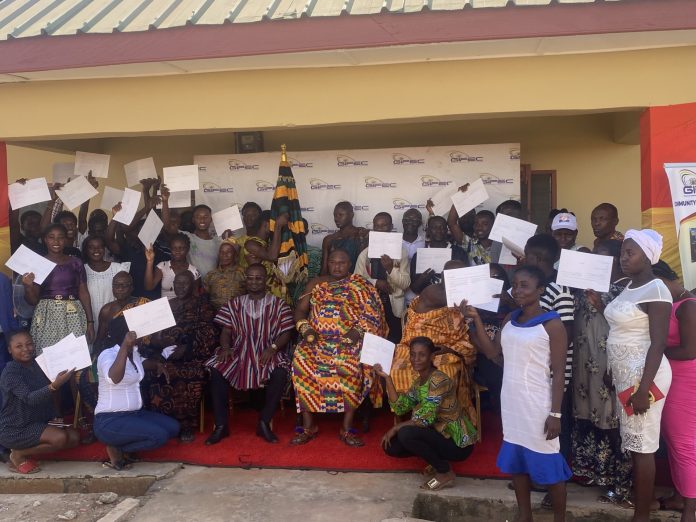The Ghana Investment Fund for Electronic Communications (GIFEC) will begin the implementation of the Ghana Digital Acceleration Project (GDAP) in the country.
The project is expected to extend fibre-connected free WiFi to 120 Community Information and Communication Technology (ICT) Centers across the country within four years.
Alhaji Faisal Issahaku Gbanjili, Director of Administration and Human Resource at GIFEC who announced this, said the community ICT centers would also be equipped with solar panels to reduce their over-reliance on the national grid.
Speaking at the climax of the fifth cohort of digital skills training for citizens at Bonwire in the Ashanti region, he said to maximise the use of the ICT equipment provided by GIFEC, the organization had instituted capacity building programmes to provide the citizenry with requisite knowledge and skills to effectively optimise the use and ultimately make them function effectively in society.
Mr Gbanjili noted that the digital skills were no longer just a convenience but a necessity, adding that, a society where technology permeated every aspect of daily lives, possessing basic digital skills had become as crucial as reading and writing.
He said it was why the GIFEC together with the International Telecommunications Union (ITU), Norwegian Agency for Development Cooperation (NORAD), and Cisco was implementing the Digital Transformation Centers (DTC) Project, with the aim of providing digital skills to citizens, especially, those categorised as marginalised in unserved and underserved communities in Ghana.
Since the inception of the DTC Project in 2020, 22 Master Trainers, 157 Trainers and over 10,000 beneficiaries have been trained in Cisco-certified Basic and Intermediate ICT Courses.
The programme has recorded successes in ICT infrastructure development through the Rural Telephony and Digital Inclusion Project, establishing 2,016 rural sites across the country.
To date, 1,010 sites have been built, with 550 activated. 1,006 more will be built next year.
Mr. Alex Kojo Boahoma, National Project Officer, DTC Project, ITU Ghana, said despite the initial project end date of December 2023, the NORAD and ITU have extended until September 2024, providing an additional nine months for active implementation.
This extension allows us to deepen our impact on marginalized individuals, including small business owners, persons with disabilities, school dropouts, head porters, unemployed youth, students, and teachers.
In 2024, he said the focus would be on sub-groups within the beneficiary categories, with targeted attention to persons with visual impairment and unemployed youth.
The extension would also empower ICT instructors to provide basic digital skills to visually impaired individuals, aiming to reach at least 150 citizens next year.
Nana Bobie Ansah II, Bonwirehene, applauded the initiators in digital transformation for widening the scope to underserved communities.
He believed these skill set could help the youth in entrepreneurship to transact businesses online and expand business operation corridors.
Source: News Ghana


